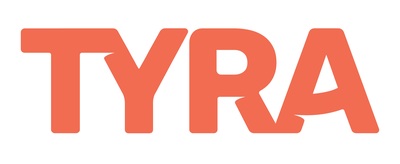Tyra Biosciences Doses First Patient in Phase 2 Study of TYRA-300 in Low-Grade Intermediate Risk Non-Muscle Invasive Bladder Cancer (SURF302)
Rhea-AI Summary
Tyra Biosciences (Nasdaq: TYRA) has initiated patient dosing in the Phase 2 SURF302 clinical trial of TYRA-300 for low-grade, intermediate risk non-muscle invasive bladder cancer (IR NMIBC). TYRA-300 is being developed as the first oral treatment for IR NMIBC and represents a potential first-in-class, FGFR3-selective inhibitor.
The SURF302 study (NCT06995677) will evaluate up to 90 participants across multiple U.S. sites, with patients randomized to receive either 50 mg or 60 mg once-daily doses. The trial's primary endpoint is the complete response (CR) rate at three months, with initial data expected in 1H 2026. Secondary endpoints include time to recurrence, duration of response, recurrence-free survival, progression-free survival, and safety measures.
Notably, TYRA-300 targets FGFR3, a gene mutated in approximately 70% of low-grade IR NMIBC cases. The drug is designed to minimize toxicities associated with inhibition of other FGFR types while remaining effective against FGFR3 gatekeeper mutations. The company also plans to evaluate TYRA-300 in pediatric achondroplasia through the BEACH301 Phase 2 study later this year.
[ "First patient dosed in Phase 2 SURF302 trial for IR NMIBC", "TYRA-300 is the only oral treatment in development for IR NMIBC", "Drug targets FGFR3 mutations present in ~70% of low-grade IR NMIBC cases", "Potential to reduce disease recurrence and surgical interventions", "Additional market opportunity in pediatric achondroplasia with BEACH301 Phase 2 study" ]Positive
- None.
Negative
- Initial efficacy data not expected until first half of 2026
- Study still needs to evaluate optimal dosing with potential for additional cohorts
News Market Reaction 1 Alert
On the day this news was published, TYRA gained 5.16%, reflecting a notable positive market reaction.
Data tracked by StockTitan Argus on the day of publication.
-TYRA-300 is the only orally administered investigational agent in clinical development for IR NMIBC-
-Initial 3-month complete response (CR) data expected to be reported in 1H 2026-
TYRA-300 is a potential first-in-class, investigational, oral, FGFR3-selective inhibitor designed to minimize the toxicities associated with inhibition of FGFR1, FGFR2 and FGFR4, while being agnostic for FGFR3 gatekeeper mutations. FGFR3 is a frequently altered gene in IR NMIBC, with ~
"Our goal is to develop TYRA-300 as the first once-daily oral treatment designed to reduce disease recurrence, as well as surgical procedural intervention and intravesical therapy, for people living with IR NMIBC," said Dr. Erik Goluboff, SVP of Clinical Development at TYRA. "We believe we are well-positioned to contribute meaningful advancements to the field of bladder cancer with SURF302, and we anticipate that the clinical data will offer valuable insights with the potential to enhance patient outcomes."
SURF302 (NCT06995677) is an open-label Phase 2 clinical study evaluating the efficacy and safety of TYRA-300 in participants with FGFR3-altered low-grade, IR NMIBC. The study will enroll up to 90 participants at multiple sites primarily in the United States. Participants will be randomized initially to treatment with TYRA-300 at 50 mg once daily (QD) (Cohort 1) or treatment with TYRA-300 at 60 mg QD (Cohort 2). Following a review of efficacy and safety, an additional dosing cohort may be evaluated. The primary endpoint is complete response (CR) rate at three months. Secondary endpoints include time to recurrence, the median duration of response, recurrence free survival (RFS), progression free survival (PFS), safety and tolerability.
"I am excited that the Phase 2 trial evaluating oral TYRA-300 in IR NMIBC is now underway," said Dr. Tom Jayram, Director of the Advanced Therapeutics Center at Urology Associates in
TYRA-300 will also be evaluated in pediatric achondroplasia in the BEACH301 Phase 2 study, which is open for enrollment and for which the Company now expects first child dosing in the second half of the year.
About Non-Muscle Invasive Bladder Cancer
In
About TYRA-300
TYRA-300 is the Company's lead precision medicine program stemming from its in-house SNÅP platform. TYRA-300 is an investigational, oral, FGFR3-selective inhibitor currently in development for the treatment of cancer and skeletal dysplasia that has demonstrated interim clinical proof-of-concept results in metastatic urothelial cancer (mUC). TYRA-300's planned clinical development includes three Phase 2 clinical trials: SURF302 for IR NMIBC, BEACH301 for pediatric achondroplasia and SURF301 for mUC.
Please visit the Patients page of our website for more information on our clinical trials.
About Tyra Biosciences
Tyra Biosciences, Inc. (Nasdaq: TYRA) is a clinical-stage biotechnology company focused on developing next-generation precision medicines that target large opportunities in FGFR biology. The Company's in-house precision medicine platform, SNÅP, enables rapid and precise drug design through iterative molecular SNÅPshots that help predict genetic alterations most likely to cause acquired resistance to existing therapies. TYRA's expertise in FGFR biology has created a differentiated pipeline with three clinical-stage programs in targeted oncology and genetically defined conditions. The Company's lead precision medicine stemming from SNÅP, TYRA-300, is a potential first-in-class selective FGFR3 inhibitor that is designed to avoid the toxicities associated with inhibition of FGFR1, FGFR2 and FGFR4, while being agnostic for FGFR3 gatekeeper mutations. TYRA-300's planned clinical development includes three Phase 2 studies: SURF302 for IR NMIBC, BEACH301 for pediatric achondroplasia and SURF301 for metastatic urothelial cancer. TYRA is also developing TYRA-200, an oral, investigational, FGFR1/2/3 inhibitor, in the SURF201 study for metastatic intrahepatic cholangiocarcinoma, and TYRA-430, an oral, investigational FGFR4/3-biased inhibitor for FGF19+/FGFR4-driven cancers. TYRA is based in
For more information about our science, pipeline and people, please visit www.tyra.bio and engage with us on LinkedIn.
Forward-Looking Statements
TYRA cautions you that statements contained in this press release regarding matters that are not historical facts are forward-looking statements. The forward-looking statements are based on our current beliefs and expectations and include, but are not limited to: expected reporting of data from the SURF302 study and the timing thereof; the design and goals of the SURF302 study; the potential to develop next-generation precision medicines and for TYRA-300 to be a first-in-class, once-daily oral treatment, and the potential safety and therapeutic benefits of TYRA-300; the expected timing and phase of development of TYRA-300, including the expected timing of dosing for the BEACH301 study in pediatric achondroplasia; and the potential for SNÅP to develop therapies. Actual results may differ from those set forth in this press release due to the risks and uncertainties inherent in our business, including, without limitation: potential delays in the commencement, recruitment, enrollment, data readouts and completion of clinical trials and preclinical studies; results from preclinical studies or early clinical trials not necessarily being predictive of future results; interim results of a clinical trial are not necessarily indicative of final results and one or more of the clinical outcomes may materially change as patient enrollment continues, following more comprehensive reviews of the data, as follow-up on the outcome of any particular patient continues and as more patient or final data becomes available, including the risk that unconfirmed responses may not ultimately result in confirmed responses to treatment after follow-up evaluations; the potential for proof-of-concept results to fail to result in successful subsequent development of TYRA-300; later developments with the FDA may be inconsistent with prior feedback from the FDA; we are early in our development efforts, and the approach we are taking to discover and develop drugs based on our SNÅP platform is novel and unproven and it may never lead to product candidates that are successful in clinical development or approved products of commercial value; our dependence on third parties in connection with manufacturing, research and preclinical testing; acceptance by the FDA of INDs or of similar regulatory submissions by comparable foreign regulatory authorities for the conduct of clinical trials of our product candidates; an accelerated development or approval pathway may not be available for TYRA-300 or other product candidates and any such pathway may not lead to a faster development process; unexpected adverse side effects or inadequate efficacy of our product candidates that may limit their development, regulatory approval, and/or commercialization; the potential for our programs and prospects to be negatively impacted by developments relating to our competitors, including the results of studies or regulatory determinations relating to our competitors; unfavorable results from preclinical studies; regulatory developments in
Contact:
Amy Conrad
aconrad@tyra.bio
![]() View original content to download multimedia:https://www.prnewswire.com/news-releases/tyra-biosciences-doses-first-patient-in-phase-2-study-of-tyra-300-in-low-grade-intermediate-risk-non-muscle-invasive-bladder-cancer-surf302-302494353.html
View original content to download multimedia:https://www.prnewswire.com/news-releases/tyra-biosciences-doses-first-patient-in-phase-2-study-of-tyra-300-in-low-grade-intermediate-risk-non-muscle-invasive-bladder-cancer-surf302-302494353.html
SOURCE Tyra Biosciences









